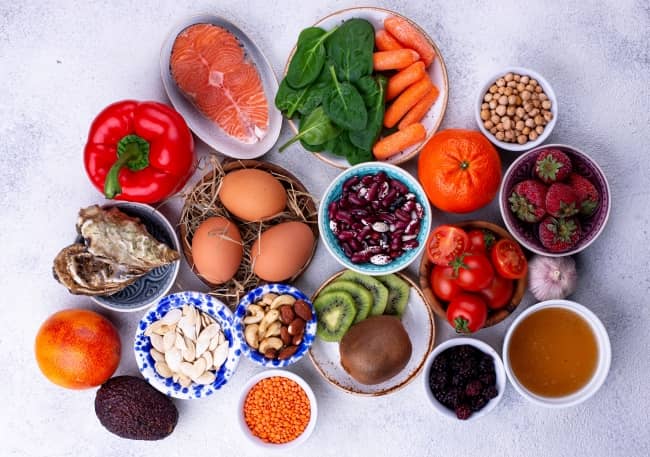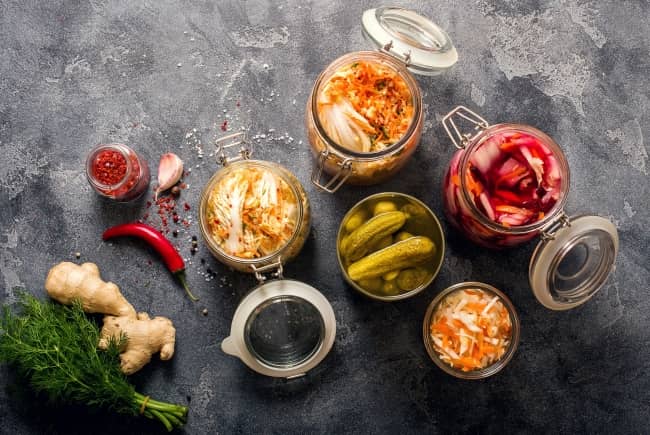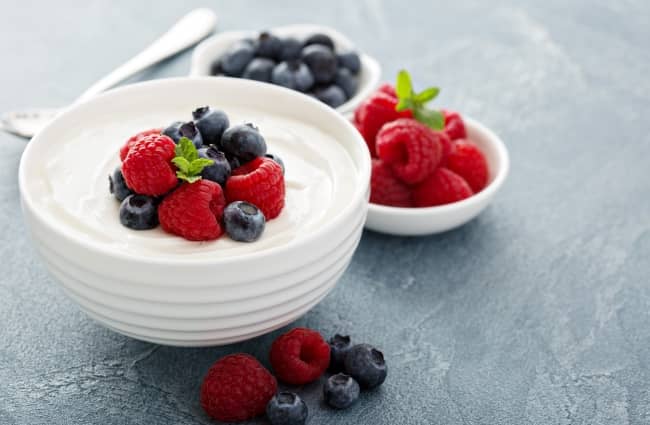A Guide to Gut Health
A growing amount of scientific evidence points to the connection between gut health and overall health.
What you eat is thought to have a significant effect on the gut’s bacteria, making it important to pay attention to how your diet affects your overall health.
Here, we’ll cover what gut health is, the best foods for gut health, and the best supplements for gut health.
What Is Gut Health?
The gut microbiome or gut flora refers to the trillions of yeasts, viruses, and bacteria that live in the gut. The gut is also home to 70% of the body’s immune cells. A higher level of diverse bacteria in the gut may be associated with better health.
The Importance of Gut Health
A healthy gut featuring the proper balance of microorganisms is thought to have a significant impact on:
- The immune system
- Overall mood
- Mental health
- Brain Health
- Heart health
- Sleep Quality
- Digestion
Signs of an Unhealthy Gut
If your gut health needs to be improved, you may experience unwanted symptoms such as:
- Upset stomach
- Bloating
- Gas
- Heartburn
- Constipation
- Fatigue
- Sleep disturbances
- Unexplained changes to your weight
- Skin irritation
- Food intolerances
Factors That Affect Gut Health
The gut microbiome is affected by many factors, including:
- Environment
- Use of antibiotics
- High-stress levels
- Poor sleep quality
- Genetics
- Diet
Gut Health Foods
Diet and gut health are proven to be connected. The best diet for gut health is thought to feature whole foods, fruits, vegetables, fermented foods, and minimally processed foods.
Here’s a list of some of the best gut health foods.
1. Collagen-Rich Foods
Collagen-rich foods, along with foods that support collagen production, may be an important part of gut health. Aim to increase your body’s production of collagen by consuming more:
- Bone broth
- Citrus fruits
- Broccoli
- Salmon skin
- Eggs
- Collagen supplements
- Meat
- Nuts
2. High-Fiber Foods
There are many benefits of eating enough fiber, including the potential for better gut health.
Some examples of high-fiber foods include:
- Legumes, such as chickpeas, beans, and lentils
- Oats
- Quinoa
- Whole wheat bread
- Apples
- Berries
- Asparagus
- Pears
- Broccoli
- Prunes
- Raisins
- Brown rice
- Bulgur
- Barley
- Leeks
- Sunflower seeds
- Pumpkin seeds
- Sweet potatoes
- Almonds
- Popcorn
- Chia seeds
- Pistachios
- Walnuts
- Avocados
- Beets
- Brussel sprouts
- Oranges
- Squash
3. Probiotic Foods
Fermented foods are one of the best foods for gut health. By supplying the body with probiotics, also known as “good bacteria”, fermented foods can help support a healthy gut microbiome.
Examples of probiotic foods include:
- Kefir (fermented milk)
- Tempeh (fermented soybeans)
- Yogurt
- Kimchi (fermented vegetables)
- Kombucha (fermented tea)
- Sauerkraut (fermented cabbage)
- Miso (a fermented paste from soybeans)
4. Prebiotic Foods
Prebiotic foods contain soluble fiber — galactooligosaccharides, inulin, fructooligosaccharides — that acts as fuel for the production of more good bacteria in the gut.
Examples of prebiotic foods include:
- Asparagus
- Soybeans
- Bananas
- Onions
- Pears
- Chicory
- Garlic
- Oats
- Jerusalem artichokes
- Watermelon
- Leeks
5. Anti-Inflammatory Foods
If you want to support a healthy gut — and overall well-being, try adding more anti-inflammatory foods to your diet.
Examples of anti-inflammatory foods include:
- Fatty fish, including anchovies, sardines, and wild-caught salmon
- Flax seeds
- Berries
- Grapes
- Green tea
- Cherries
- Garlic
- Mushrooms
- Broccoli
- Avocados
- Tomatoes
- Bell peppers
- Walnuts
6. Synbiotic Foods
Want the ultimate gut health food? Try combining foods containing prebiotics and probiotics into a power combo known as synbiotic foods.
These foods support the gut by providing the benefits of probiotics and prebiotics all in one meal.
Some ways to add synbiotic foods to your diet include:
- Yogurt with raspberries or blueberries
- A stir fry featuring onion, leeks, garlic, asparagus, and kimchi
- A breakfast bowl made with slightly green banana and yogurt or kefir
- A veggie burger topped with onion and sauerkraut
7. Legumes
We’ve already touched on the gut health benefits of the high fiber content of legumes, but they also feed gut bacteria in the large intestine. Try adding the following to your gut health diet:
- Black beans
- Lentils
- Chickpeas
- Peas
- Kidney beans
- Northern beans
Beans and lentils are easy to add to soups and stews to increase the fiber intake and add a boost of vitamins and minerals.
8. Foods Rich in Polyphenols
Gut microbes benefit from polyphenols, beneficial plant compounds found in foods such as:
- Prunes
- Tea
- Dark chocolate
- Berries
- Apples
- Red onions
- Artichokes
- Extra virgin olive oil
- Flaxseeds
- Wine
- Herbs and spices such as turmeric
More Tips on Improving Gut Health
Along with consuming foods for gut health, the following tips may help support a healthy gut microbiome:
- Exercise regularly
- Eat less sugar and processed foods
- Avoid artificial sweeteners
- Get enough sleep
- Avoid or limit alcohol consumption
- Manage stress levels
- Avoid smoking
- Eat red meat in moderation
- Stay hydrated
- Ask your doctor if you should consider taking a probiotic supplement or Gut Health Supplement
The Best Gut Health Supplements
If you are wondering about the best gut health supplements, Isagenix has created a line dedicated to supporting a healthy gut microbiome.
Isagenix products with a specific focus on gut health include:
- Zija Core Moringa Triotic Gut Support — Containing a proprietary blend of three clinically studied probiotic strains, Zija Triotic is a convenient supplement designed to help support the gut microbiome, promote healthy digestion, and support optimal nutrient absorption.
- IsaBiome Probiotics — Feed the good bacteria in your gut with almost a dozen clinically tested strains of gut-friendly bacteria.
- IsaGenesis — A unique formula designed to help support the body’s immune system, vitality, and energy levels.
Have More Questions on Gut Health?
Although the human gut is immensely complex, it is becoming increasingly clear that gut health has a significant impact on overall health.
By eating gut-friendly foods, avoiding processed foods, limiting your sugar intake, and managing stress levels, you can help support a healthy gut microbiome.
If you have questions or would like personalized product recommendations, we invite you to reach out to us.














